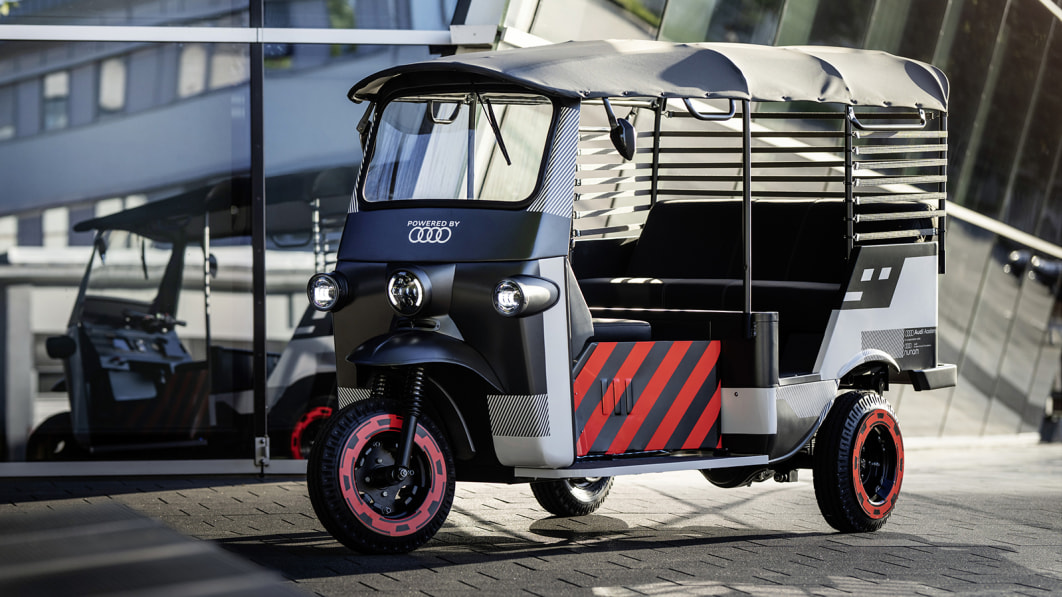
While electric cars offer the possibility of extremely low-emission operation, that’s only one part of the green equation. Automakers are looking for ways to make sure that the production and afterlife of EVs are environmentally friendly. One of those ways is to find uses for old batteries. Audi, in collaboration with nonprofit startup company Nunam, is looking at an interesting possibility: electric rickshaws.
The rickshaw you see in the gallery is powered by battery modules from Audi E-Tron electric SUVs. Specifically, they’re from test prototype examples. As the co-founder of Nunam, Prodip Chatterjee, notes, while the batteries may not be ideal for car use anymore, they’re still fine in a low-power, lightweight vehicle such as a rickshaw. Furthermore, while electric rickshaws aren’t uncommon in India, where these will be tested, they’re mainly powered by lead-acid batteries. The E-Tron lithium ion batteries offer better energy density and potentially better longevity. Audi and Nunam will also be looking at potential third-life uses for these batteries for stationary power storage, possibly for lighting.
Only three of the rickshaws have been built so far. Nunam will be providing them to a local nonprofit organization that helps women make and sell goods without relying on other intermediaries. As such, the rickshaws will be used for transporting those goods around. Furthermore, a solar panel charging system will be provided to make charging emission-free. During the day, the panels will charge yet another E-Tron battery, and when the rickshaws return at the end of the day, they’ll charge off of the electricity stored in that other battery.
The rickshaws will go into use early next year. Nunam will be tracking the use and battery condition to learn more about the characteristics of these old batteries and the viability for these second-life use cases.
Related video:
